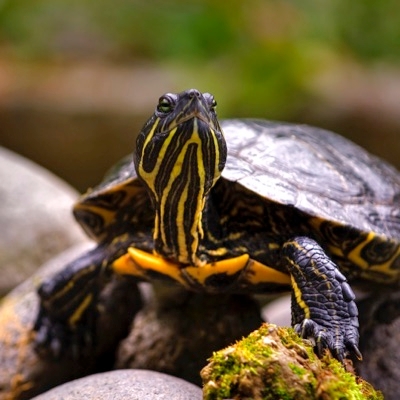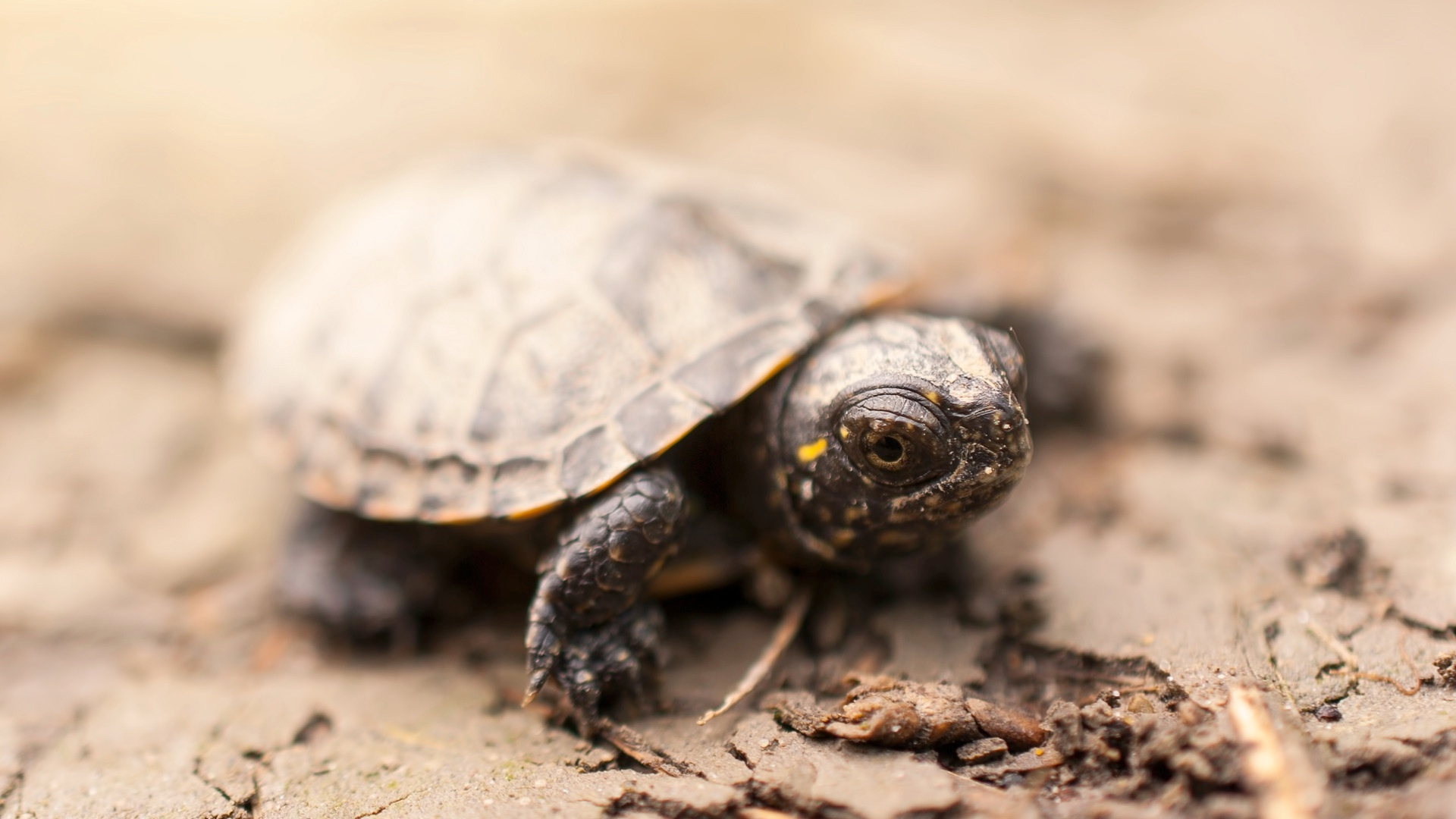The Trouble With Tiny Turtles:
Summary:
The CDC investigates many Salmonella outbreaks linked to pet reptiles. Among these outbreaks, tiny turtles have caused the most illnesses. In fact, the sale of tiny pet turtles has been banned in the US since 1975 because of the number of illnesses they cause and the risk to children. Although any turtle can carry germs, tiny turtles are especially risky because children are more likely to handle them and get sick.


While many people enjoy keeping pet reptiles, some are riskier than others. Here is what you need to know about pet turtles.
Any turtle can carry germs like Salmonella that can make people sick.
- Salmonella makes people sick with diarrhea for 4 to 7 days. But for some people, especially young children and older adults, Salmonella can cause severe illness and hospitalization.
- People can get sick from Salmonella by touching turtles, their tank water, their supplies, or the areas where they live and roam.
- Turtles can look healthy and clean but still carry germs. These germs can spread to their tank water and things they touch.
Tiny turtles are especially risky and are illegal to sell as pets in the US.
The CDC investigates many Salmonella outbreaks linked to pet reptiles. Among these outbreaks, tiny turtles have caused the most illnesses. In fact, the sale of tiny pet turtles has been banned in the US since 1975 because of the number of illnesses they cause and the risk to children. Although any turtle can carry germs, tiny turtles are especially risky because children are more likely to handle them and get sick.
If you have a pet turtle, take steps to keep you and your family healthy.
- Always wash your hands right after touching, feeding, or caring for your turtle and after cleaning its supplies.
- Clean your turtle tank and supplies while you are outside the house, if possible. If you clean indoors, use a laundry sink or a tub that is only used for your turtle. Don't clean supplies in the kitchen or other areas where you eat or prepare food.
- Don't kiss or snuggle your turtle. This can spread germs to your mouth and make you sick.
If you are thinking of getting a pet turtle, consider these tips.
- Do not buy small turtles with shells less than 4 inches long. A federal law bans the sale of these turtles as pets. However, they are sometimes sold illegally at stores, flea markets, gift shops, and roadside stands
- Get your pet turtle from a reputable pet store or pet rescue. Reputable stores do not sell small turtles with shells less than 4 inches long.
- Turtles can be great pets, but they aren't right for every family. Consider picking a different pet if there is someone in your household who is at higher risk of getting severely sick from germs like Salmonella.
- Kids under 5 years old
- Adults 65 and older
- People with weakened immune systems
Remember: If you want to rehome your turtle, don't toss it or release it into the wild! Call your local pet store or reptile rescue instead.


